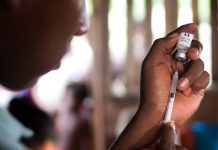
Microbiological testing specialist Nova Biologicals outlines the key infection prevention measures to keep in mind this festive season.
The celebration of holidays is one of the most common traditions around the world, with cultures everywhere looking forward to festivities throughout the year. People often plan getaways around these events, schedule large family reunions, and otherwise take a break from the monotony of work and everyday life to spend time with others whom they are normally unable to see. Over the course of the last year and a half, many have not been able to enjoy these holidays the way they used to, with large gatherings being discouraged for health and safety reasons due to the COVID-19 pandemic. To prevent infection, many avoided traditional familial reunions in favour of small-scale festivities, either by themselves or with a smaller group of people. However, with the reality that the coronavirus may be a recurring problem for the foreseeable future, it is unlikely that most of the people attending these gatherings will remain as cautious of possible infection as time goes on. Even now, hospitals around the world are dealing with overcrowding from infected patients, but that is not the only threat to public health during the holidays. With winter on its way, flu season has begun and infection from influenza is already threatening to spread through schools, family gatherings, and large celebrations. This, combined with the overpopulation of healthcare environments, could lead to a sudden surplus of infections being met with insufficient resources. In light of that possibility, it is imperative that great care is taken to mitigate the danger presented by these increasingly common viruses.
Vaccinations
One of the most important steps in preventing possible influenza infections is to receive the latest vaccine as soon as possible. Because of its resilience and the ability that many viruses share to evolve quickly, any vaccine for diseases like the flu need to adjust to these potential changes in order to stay effective. It is for this reason that updated vaccines are released over time and that many public institutions require proof of the most recent vaccinations before conducting business. This is sure to be the case for the foreseeable future as well, but that does not mean that previous vaccines were ineffective at the time. When they were first made available, they were effective in preventing infection from common forms of influenza at the time, and the research and development of those vaccines is what has allowed more recent vaccines to be created to counter newer strains of viruses. A good reference point as to how this happens can be seen in the new Delta variant of the coronavirus. While previous vaccines were designed to counter the novel coronavirus, the virus has since mutated and may require updated vaccines in order to effectively prevent infections.
Receiving a vaccination does not guarantee an immunity to the flu. Although it lowers the potential for infection, it is still possible for vaccinated people to become infected or spread the virus to others. Even after getting the vaccine, it is important to keep an eye out for any symptoms and avoid contact with those who are currently infected. Coughs, fever, headaches, fatigue, and nausea are all symptoms of the flu, as are nasal congestion and diarrhoea. If a patient were to display several of these symptoms at once, or if any persist for over a day, seeking medical attention is advised to minimise any further risk. Most importantly, avoiding other people if these symptoms are present is paramount. Hospital resources are currently taxed to near their limits, and it may, therefore, be difficult to receive treatment while so many others are currently hospitalised and recovering from COVID-19, and many public healthcare workers are already stretched thinly trying to keep up with the rise in infections.
The greatest threat from flu outbreaks this year is to people with weakened immune systems. While they were at risk in the past, the lack of availability of resources can make infections all the more severe. For those who are very young or old, or individuals who are immunocompromised, infections can have intensely negative side effects. Fatalities are possible, as are other potentially permanent side effects resulting from a lack of competent medical attention. In worst case scenarios, it is possible for someone already sick with COVID-19 to also come down with the flu, causing a temporarily weakened immune system and exacerbating any negative outcomes of the viruses. If someone suspects that they may have either the flu or the COVID-19, it is best that they continue to practice social distancing, quarantine, and avoid social events.
Preventing infections when socialising
Office parties, holiday gatherings, birthday celebrations, and any other large-scale get-togethers can serve as the ideal environment for the flu to spread from one person to many others. Whenever multiple people are within close proximity to one another in an enclosed space for an extended period of time, the odds of transmission increase dramatically. Wearing a mask or frequent use of hand sanitisers can also aid in lowering the risk of infection, but cannot guarantee it will not occur. Sharing food, in particular, can be dangerous, as viruses, along with other contaminants, can easily be transmitted from one person to another using it as a medium.
Last year, social distancing resulted in far fewer instances of flu outbreaks, but that is looking increasingly like an unrealistic expectation for the coming years. With many people and businesses attempting to return to a sense of normalcy by resuming public activities, there is unlikely to be a similar decline in infections. To mitigate this, making use of effective disinfectants and encouraging social distancing in the company of others should be a priority. After over a year and a half of life during a pandemic, it can be difficult to find the desire to continue following health mandates, but the danger posed by the current circumstances cannot be underestimated. Microbiological laboratories, such as Nova Biologicals, are able to determine whether a disinfectant is effective at eliminating the current forms of viruses. Laboratories like Nova Biologicals also evaluate whether an indoor environment is contaminated or not. If an event is taking place that cannot be avoided, it is important to reach out to a testing facility, such as Nova Biologicals, to test the efficacy of disinfectants beforehand. Face masks, when used correctly, are also beneficial. Although the best way to avoid infection is to avoid social gatherings, this may become more difficult as time goes on. In light of this, remember that both the common flu and the coronavirus are still dangerous and be sure to take active steps to avoid spreading either virus by heeding health mandates and following the tips mentioned above, even when enjoying time with family or celebrating with friends.









